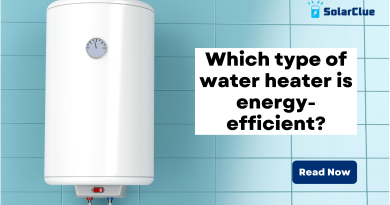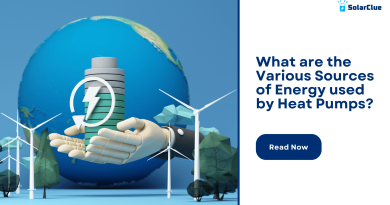How to prevent air pollution?
Air pollution is a pressing environmental concern that demands immediate attention and action. As individuals we must know how to prevent air pollution. We all must contribute towards a sustainable future.
In this blog post we will discuss in detail the ways to reduce air pollution, and what we can do to contribute towards a better future.
Table of Contents
What do you mean by air pollution?
Air pollution refers to the introduction of harmful substances, such as particulate matter, nitrogen oxides, sulfur dioxide, and other pollutants, into the atmosphere. These pollutants can have devastating effects on human health, causing respiratory diseases, cardiovascular issues, and even premature deaths. Additionally, air pollution contributes to climate change, acid rain, and the depletion of the ozone layer, posing a significant threat to the environment.
What are the sources of air pollution?

Air pollution can originate from various sources, including:
- Vehicular emissions: The burning of fossil fuels in automobiles releases harmful gases and particulate matter into the air.
- Industrial activities: Manufacturing processes, power plants, and other industrial operations often emit pollutants.
- Residential and commercial activities: The use of fossil fuels for heating, cooking, and electricity generation can contribute to air pollution.
- Agricultural practices: Certain farming methods, such as burning crop residues, can release pollutants into the air.
- Natural sources: Volcanic eruptions, dust storms, and wildfires can also contribute to air pollution.
All the above sources contribute to air pollution. But how can air pollution be reduced by individuals? The answer is by making changes in the appliances we use on a daily basis. In this blog, we will talk about one such appliance.
How can we reduce air pollution?
There are many electric devices we use to fulfill out daily needs. One such daily need is hot water. In most Indian homes, a geyser is used. But do you know a geyser consumes a lot of electricity. This electricity is produced by burning fossil fuels like coal. When these are burnt, there are emission of harmful pollutants. This result in air pollution.
The solution to this problem is a heat pump. It uses less electricity, as it uses heat from the surrounding air.
What is a heat pump and how does it work?
A heat pump is a water heating appliance, just like a geyser. But the way it works makes all the difference. Heat Pump works on the principle of transferring heat from one place to another. It consumes heat from the surrounding air. This heat is used to produce hot water.
It consists of three main components:
- Exhaust fan: This fan draws in air from the surrounding environment.
- Compressor: The compressor pressurizes and circulates a refrigerant through the system, enabling heat transfer.
- Storage tank: The heated water is stored in an insulated tank, ready for use.
These components work together to capture and transfer heat from the surrounding air to the water in the storage tank. This process consumes significantly less electricity than geysers. This makes heat pump water heaters an energy-efficient solution.
How can a heat pump help you reduce electricity consumption at home?
Instead of using electricity to create heat, it uses electricity to transfer heat from one place to another. This requires lot less electricity consumption.
Heat pump systems consume up to 75% less electricity than geysers. This reduces your household’s energy consumption and carbon footprint. By consuming less electricity, heat pump water heaters indirectly contribute to reducing air pollution caused by power generation from fossil fuels.
What are the other benefits of a heat pump system?
In addition to reducing air pollution, heat pump water heaters offer several advantages:
1. Cost-effective
Heat pump water heaters are highly cost-effective in the long run. While the initial installation cost may be higher than traditional water heaters, the energy efficiency of heat pumps translates into substantial savings on utility bills over their lifespan. By consuming significantly less electricity to heat the same amount of water, heat pump water heaters can help homeowners save hundreds or even thousands of rupees annually on their energy bills, offsetting the initial investment within a few years.
2. Long lifespan
Heat pump water heaters are designed to be durable and long-lasting. With proper maintenance and care, these systems can typically last for 10-15 years or even longer, providing reliable hot water for over a decade. This extended lifespan makes heat pump water heaters a practical and cost-effective investment for households in the long run.
3. Reduced water wastage
Traditional water heaters often waste a significant amount of water due to their inefficient heating process. Heat pump water heaters, on the other hand, heat water more efficiently, reducing the need for excessive water consumption. By minimizing water wastage, these systems not only save homeowners money on their water bills but also contribute to water conservation efforts, which is particularly important in regions with limited water resources.
4. Positive environmental impact
One of the most significant benefits of heat pump water heaters is their positive impact on the environment. By consuming significantly less electricity than traditional water heaters, these systems help reduce carbon emissions and the overall carbon footprint of a household. This reduction in emissions contributes to the prevention of air pollution, mitigating the harmful effects of greenhouse gases on the environment and combating climate change.
5. Efficient in cold climates
Unlike traditional water heaters, which can struggle to heat water efficiently in colder temperatures, heat pump water heaters are designed to operate effectively even in cold climates. This is because they rely on the transfer of heat from the surrounding air rather than generating heat directly. As a result, homeowners in colder regions can enjoy reliable hot water supply while still benefiting from the energy-efficient performance of heat pump water heaters.
Conclusion
Measures to reduce air pollution include installing energy-efficient appliances like heat pumps. They reduce electricity consumption. This also results in the reduction of burning of fossil fuels, thus reducing air pollution. It is now time for every Indian household to invest in a heat pump, for a better and a brighter future.
Visit SolarClue® to see the best heat pump water heaters. SolarClue® is an online marketplace where solar energy products are sold at discounts up to 50%.




